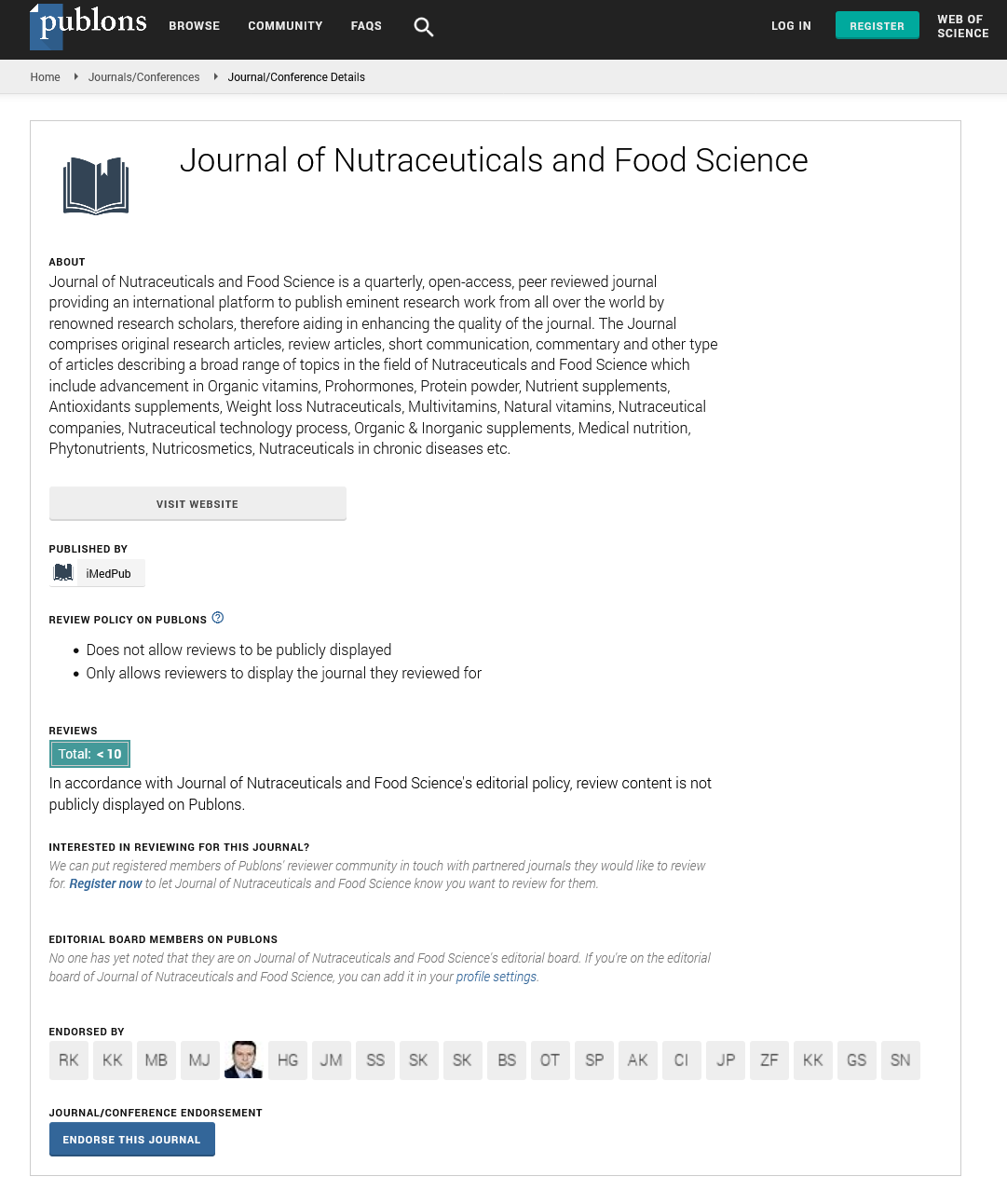Abstract
A Traditional Cereal-Based Fermented Porridge to Enhance Nutritional Status of Lactating Mothers
Women’s nutritional status during pregnancy and breastfeeding is not only critical for her health and sustainability of future generations. The studies showed that Ethiopia is one of the countries with highest level of lactating mother’s malnourishment in sub-Saharan Africa. Therefore, the aim of this study is to determine the effect of fermentation time and mixture ratio on improving the nutritional quality of Shameta in order to enhance nutritional status of lactating mothers. Completely randomized design (CRD) with a 3×4 factorial experiment with three replication was implemented. Results showed that the mixture ratio affect the pH, titratable acidity, proximate compositions, minerals content, anti-nutritional factors and antioxidant activity of porridge (unfermented Shameta). Except fiber contents, all proximate compositions, minerals content and antioxidant activity increased through fermentation time, however phytate and tannin decreased by 70.83 and 77.17%, respectively. Present finding revealed that the highest crude protein was observed in Maize-Barley-Faba bean with ratio of 90:10:15 fermented for 12 days (16.56 g/100g), while the highest crude fat (13.23 g/100g) were found in Maize-Barley-Faba bean with ratio of 90:5:5 fermented for the same days. The highest minerals content were observed in Maize-Barley-Faba bean with ratio of 90:10:15 fermented for 12 days, while the lowest phytate and tannin were observed in Maize-Barley-Faba bean with ratio of 90:5:5 fermented for the same days. Present finding confirmed that composite Shameta made of Maize-Barley-Faba bean with ratio of 90:10:15 fermented for 8, 10 and 12 days improved the crude protein and mineral contents with low anti-nutritional factors and good antioxidant activities. Therefore, lactating mothers should composite locally available cereals and legumes to nourish improved protein and minerals. However, researchers can be improved beyond this finding through blending ratios and fermentation conditions with appropriate starter culture.
Author(s):
Daniel A. Kitessa
Abstract | Full-Text | PDF
Share this

Google scholar citation report
Citations : 393
Journal of Nutraceuticals and Food Science received 393 citations as per google scholar report
Journal of Nutraceuticals and Food Science peer review process verified at publons
Abstracted/Indexed in
- Google Scholar
- Publons
- Secret Search Engine Labs
Open Access Journals
- Aquaculture & Veterinary Science
- Chemistry & Chemical Sciences
- Clinical Sciences
- Engineering
- General Science
- Genetics & Molecular Biology
- Health Care & Nursing
- Immunology & Microbiology
- Materials Science
- Mathematics & Physics
- Medical Sciences
- Neurology & Psychiatry
- Oncology & Cancer Science
- Pharmaceutical Sciences


